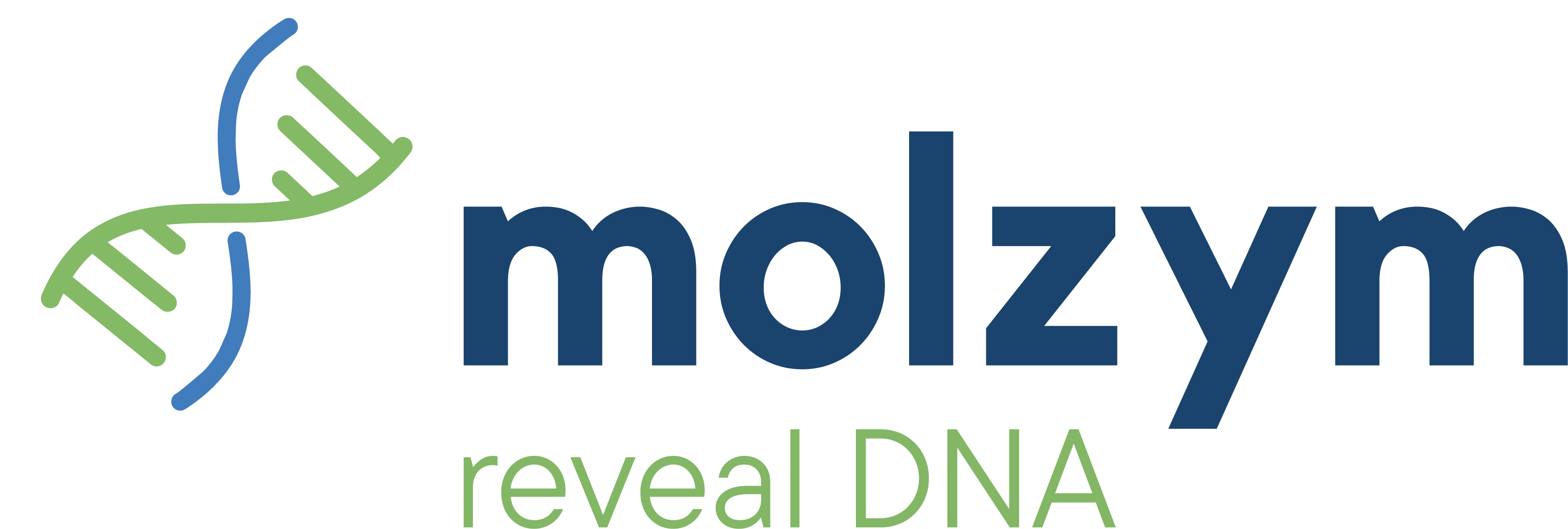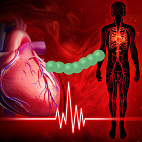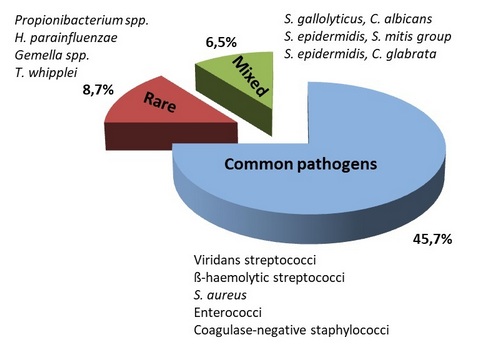Diagnosis of Culture-Negative Infective Endocarditis |
| 03 August 2018 |
|
Molecular analysis was performed using SepsiTest™-UMD which provides extraction of DNA from enriched microorganisms and broad-range rRNA gene PCR assays. Forward and reverse primers of the assays bind to conserved regions that border the variable V3 and V4 parts of the bacterial 16S and the variable V8 and V9 locations of the fungal 18S rRNA genes, respectively. Amplicons from positive reactions were Sanger-sequenced and species were identified by Blast analysis. |
|
Fig.1: Microorganisms found on heart valves from culture-negative or IE suspected patients by rDNA PCR and sequencing (data from [1]). The overall absolute positivity was 60.9% (n=46 patients). Data is given in absolute percentages. |
|
Among the 46 patients, SepsiTest™-UMD identified IE-related pathogens at a rate of 60.9%. Interestingly, similar to other studies with culture-confirmed results [2], streptococci, S. aureus, enterococci and coagulase-negative staphylococci made up the majority of pathogens (45.7%). Rare pathogens were found at a rate of 8.7%, including typical IE aetiologies like Propionibacterium spp., Haemophilus parainfluenzae, Gemella spp. and Tropheryma whipplei. Also, a relatively high rate of mixed infections was observed comprising of two Gram-positives and Gram-positives with Candida species. SepsiTest™-UMD results were taken for a change from standard schematic broad-range to a targeted antibiotic treatment regime in 7 cases (15%). The authors regarded the availability of SepsiTest™-UMD results within 24 hours an important advantage over culture which required longer times to the results, often only available days after surgery. |
| References |
| [1] Marsch G, Orszag P, Mashaqi B, Kuehn C, Haverich A (2015) Antibiotic therapy following polymerase chain reaction diagnosis of infective endocarditis: a single centre experience. Interac Cardiovasc Thorac Surg 20, 589-593. |
| [2] Lustig M (2018) Infective endocarditis – value of 16S/18S broad-range rDNA diagnosis of pathogens. Trends Mol Diag 2/18, 1-2. (download) |
| Brochure Product Information |

 Marsch etal. [1] intended to investigate the value of 16S and 18S rDNA PCR with subsequent sequencing for routine diagnosis of bacterial and fungal pathogens in heart valves of infective endocarditis (IE) patients. Patients included in the study had a negative blood culture, provided inconsistent preoperative results or showed a preoperative and intraoperative suspect of IE.
Marsch etal. [1] intended to investigate the value of 16S and 18S rDNA PCR with subsequent sequencing for routine diagnosis of bacterial and fungal pathogens in heart valves of infective endocarditis (IE) patients. Patients included in the study had a negative blood culture, provided inconsistent preoperative results or showed a preoperative and intraoperative suspect of IE.